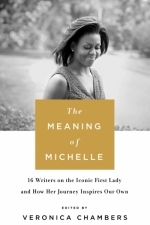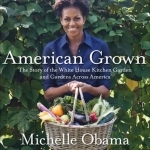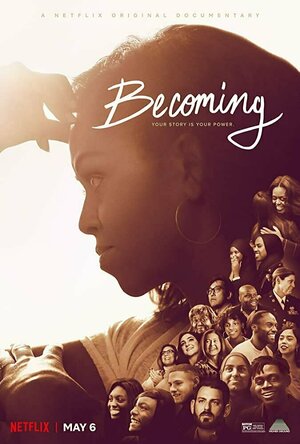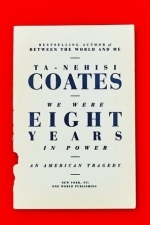Search

The Meaning of Michelle: 16 Writers on the Iconic First Lady and How Her Journey Inspires Our Own
Book
“Whenever I think about Michelle Obama, I think, ‘When I grow up, I want to be just like her. I...
Essays Politics social issues
Stephanie Neve (104 KP) rated Becoming in Books
Jun 25, 2019
A heartwarming insight into the life of the obamas
So many things I didn't know about Michelle and Barack Obama. Michelle is an intelligent and compassionate woman and it was interesting to see both her and her husbands journey to the Whitehouse. Her stories about love and loss had me in tears numerous times. Great read.
Veronica Pena (690 KP) rated Becoming (2020) in Movies
May 19, 2020
Perhaps I'm biased but I love Michelle Obama. She's the type of woman I aspire to be. I've read her memoir and this documentary is just a deeper dive into who she is as a person, as a role model, as a mother, as a wife, as a black woman living in the United States. She is fierce and passionate and it radiates off the screen throughout this film.
Not only is this film beautifully shot, but the majority of its production team are women and I think that's equally as incredible. More than anything, this film provides some hope. We are in some unprecedented times in various ways, but she is confident we will persevere and I believe her.
Michelle Obama is a gift and it's incredible to watch her in this film.
Not only is this film beautifully shot, but the majority of its production team are women and I think that's equally as incredible. More than anything, this film provides some hope. We are in some unprecedented times in various ways, but she is confident we will persevere and I believe her.
Michelle Obama is a gift and it's incredible to watch her in this film.

American Grown: The Story of the White House Kitchen Garden and Gardens Across America
Book
Through her very personal telling of the story behind the White House Kitchen Gardens, First Lady...
Suswatibasu (1701 KP) rated We Were Eight Years in Power: An American Tragedy in Books
Nov 16, 2017
An honest look at the Obama years
The simplest way to describe "We Were Eight Years in Power" is as a selection of Ta-Nehisi Coates' most influential pieces from The Atlantic, organised chronologically. The book is actually far more than that, establishing Coates as the pre-eminent black public intellectual of his generation.
Coates is one of the first to show up to discuss all three contemporary themes: the man, the community, national identity. He critiques respectability politics. He writes about mass incarceration. He writes about Michelle Obama and Chicago's South Side. He writes about how Barack Obama was exceptional, in many senses, and about the paradoxical limits of the first black president's power to address race and racism. He writes about the qualitative difference between white economic prospects and black economic prospects, thanks to discriminatory policies promulgated by the government even during progressive times, and about how, in his view, reparations would be the only way to redress the problem.
An air of resignation begins to bleed into Coates' writing even before his last essay, coming into the final years of the Obama administration. It is an eloquent eulogy to the struggles that African Americans are facing and increasingly fearing today.
Coates is one of the first to show up to discuss all three contemporary themes: the man, the community, national identity. He critiques respectability politics. He writes about mass incarceration. He writes about Michelle Obama and Chicago's South Side. He writes about how Barack Obama was exceptional, in many senses, and about the paradoxical limits of the first black president's power to address race and racism. He writes about the qualitative difference between white economic prospects and black economic prospects, thanks to discriminatory policies promulgated by the government even during progressive times, and about how, in his view, reparations would be the only way to redress the problem.
An air of resignation begins to bleed into Coates' writing even before his last essay, coming into the final years of the Obama administration. It is an eloquent eulogy to the struggles that African Americans are facing and increasingly fearing today.







